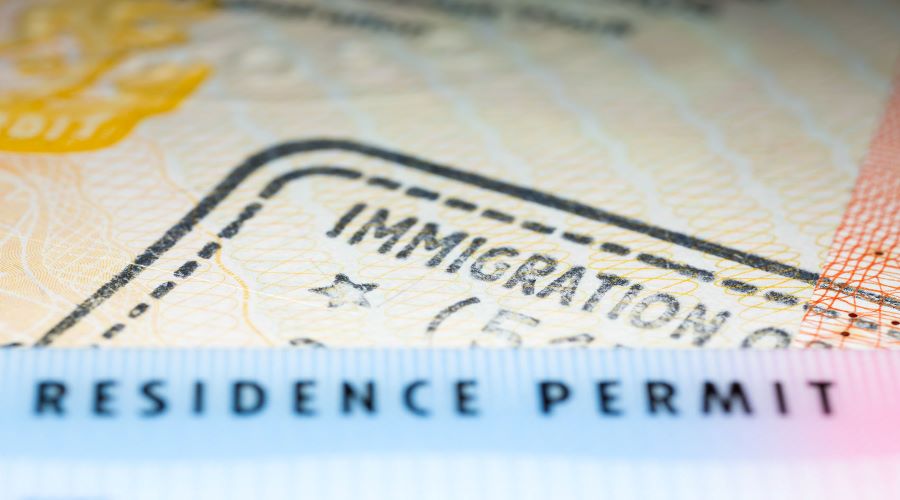
Last month, the UK government unveiled its new Graduate Immigration Route, claiming that it would allow the “brightest and the best international students” to remain in the country after they graduate. The visa will replace the UK’s previous Post Study Worker visa, which was scrapped in 2012, giving international graduates two years to find a job eligible under the new points-based immigration system. Critics have dubbed the move “too generous”, but supporters say the new visa route will allow international students a fair shot at entering the UK workforce and boost enrolment numbers.
In 2019, just over 460,000 overseas students attended higher education institutes in the UK, representing a decline in numbers since 2011. The government has pledged to increase this number by 20,000 students over the coming decade.
Speaking to the Guardian, Education Secretary Gavin Williamson said: “The important contribution international students make to our country and universities is both cultural and economic. Their presence benefits Britain, which is why we’ve increased the period of time these students can remain in the UK after their studies.
“Our universities thrive on being open global institutions. Introducing the graduate route ensures our prestigious higher education sector will continue to attract the best talent from around the world to global Britain.”
What is the New Graduate Route?
The new graduate visa is a two-year work visa that extends the period of time international graduates can remain in the UK from two months to two years. This time period has been further extended to three years for PhD students. It has been introduced to overturn policy enacted under Theresa May’s leadership, which restricted immigration options for those looking to enter the UK from outside the EU. The route will open on July 1 2021, and all applications must be made from inside the UK.
The government said that there will be no cap on how many graduate visas can be granted and that the route will allow international students to look for jobs regardless of their degree subject.
At the end of the two years, graduates will need to apply for a work visa via the UK’s new employment routes.
Chief executive of Universities UK, Alistair Jarvis, said: “The introduction of a two-year post-study work visa is something Universities UK has long campaigned for and we strongly welcome this policy change, which will put us back where we belong as a first-choice study destination,” Jarvis said. “Not only will a wide range of employers now benefit from access to talented graduates from around the world, these students hold lifelong links with the UK.”
Who is eligible?
The new Graduate immigration route will be open to international students with either a current Tier 4 visa or valid student permission. These will need to be active when the individual applies for their new visa. Students can apply for a graduate visa once they have successfully completed their higher education course. The person applying for a graduate visa must hold their Tier 4 visa in connection with the degree they intend to use to apply for the graduate visa.
The student’s university must also give UKVI notice that the course has been completed, and, if the applicant was supported by a government sponsor or international scholarship agency, they must gain permission from the relevant party.
Graduates are not eligible for this route if they have previously received a visa via the UK’s graduate immigration program. Those who graduate before July 1 will also not be eligible.
Unlike other visa routes, the graduate visa is not subject to the applicant’s finances, skill level, or salary. It also removes the English language requirement, since it will already have been met by the applicant when they were issued their study visa.
Will COVID-19 affect eligibility?
The COVID-19 pandemic forced many international students to complete higher education courses via remote learning, making it impossible to meet the 12 months in the UK requirement. However, the government has said that those who started their course in autumn 2020 will be given until June 21 2021 to return to the UK under their student visa. Students who started their course between January 1 and February 28 2021 will have until September 27 2021 to enter the UK.
Barbara Wickham, the Director for the Indian British Council, said: “The UK is committed to supporting thousands of Indian students in their dreams to pursue a world-class UK education and post-study employment opportunities. Given the pandemic travel restrictions, these new timelines to reach the UK will help ensure international students are able to benefit from the Graduate Route and gain coveted international work experience. Indian students are encouraged to reach out to their universities and seek regular guidance on blended learning, the recommended time to travel to the UK, and on any other support required on campus.”
How much will it cost to apply?
As with any immigration-based application, there will be a fee to apply for the new graduate visa. The basic fee to apply is set at £700, with an additional £624 per year to cover the full rate of the Immigration Health Surcharge. There may also be additional legal costs if the circumstances are more complex or require the assistance of legal professional.
How will the new visa affect dependents?
The new rules regarding dependents are slightly more complicated than the basic eligibility requirements. If an individual is an approved dependent of the applicant and is already in the UK, they will be allowed to apply alongside the new graduate. That means that international family members living in the UK will only be able to apply if they have a UK dependant visa connected to the main applicant.
No new dependents will be eligible to join the applicant in the UK or apply for dependent status, except for children who were born in the UK.